How to Install Junction Box in Existing Wall
10 Most Common Electrical Mistakes DIYers Make
Wiring problems and mistakes are all too common, and if left uncorrected have the potential to cause short circuits, shocks and even fires. Here's what to look for and how to fix what you find.
1 / 10
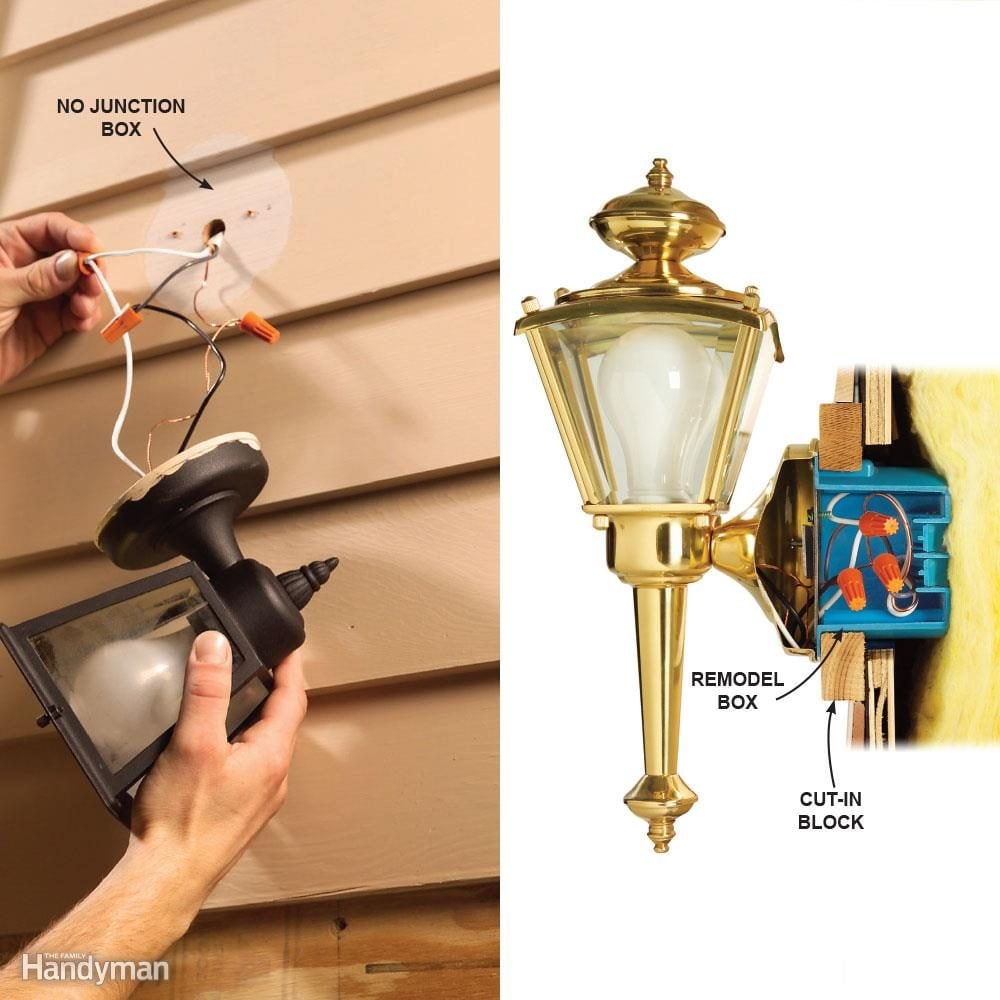 Family Handyman
Family Handyman
Making Connections Outside Electrical Boxes
Mistake: No electrical box | Never connect wires outside of electrical boxes. Junction boxes (or a J box) protect the connections from accidental damage and contain sparks and heat from a loose connection or short circuit.
Solution: Add a box | Where connections aren't contained in an electrical box, install a box and reconnect the wires inside it. The photo shows one way to do this for an exterior light mounted on wood siding.
2 / 10
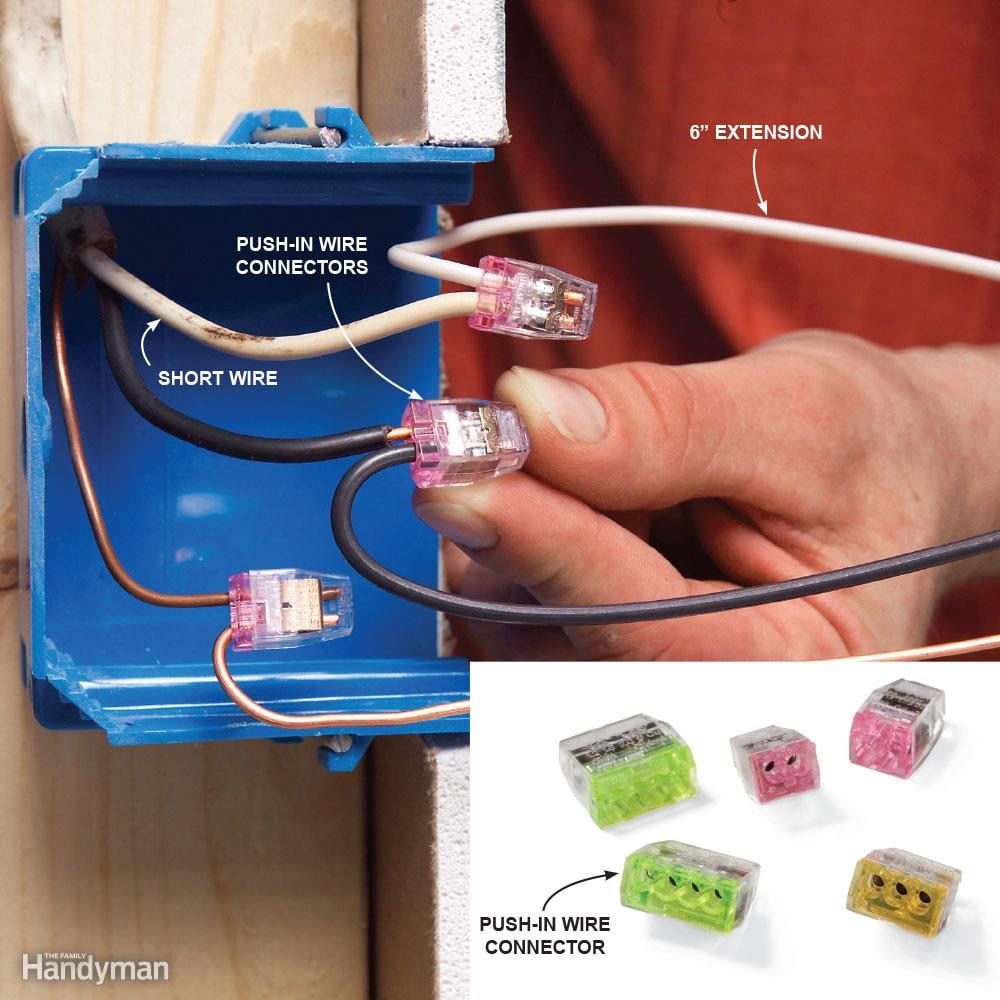 Family Handyman
Family Handyman
Cutting Wires Too Short
Mistake 2: Wires too short | Wires that are cut too short make wire connections difficult and—since you're more likely to make poor connections—dangerous. Leave the wires long enough to protrude at least 3 in. from the box.
Solution: Extend wires | If you run into short wires, there's an easy fix. Simply add 6-in. extensions onto the existing wires. The photo shows a type of wire connector that's easier to install in tight spots. You'll find these in hardware stores and home centers.
3 / 10
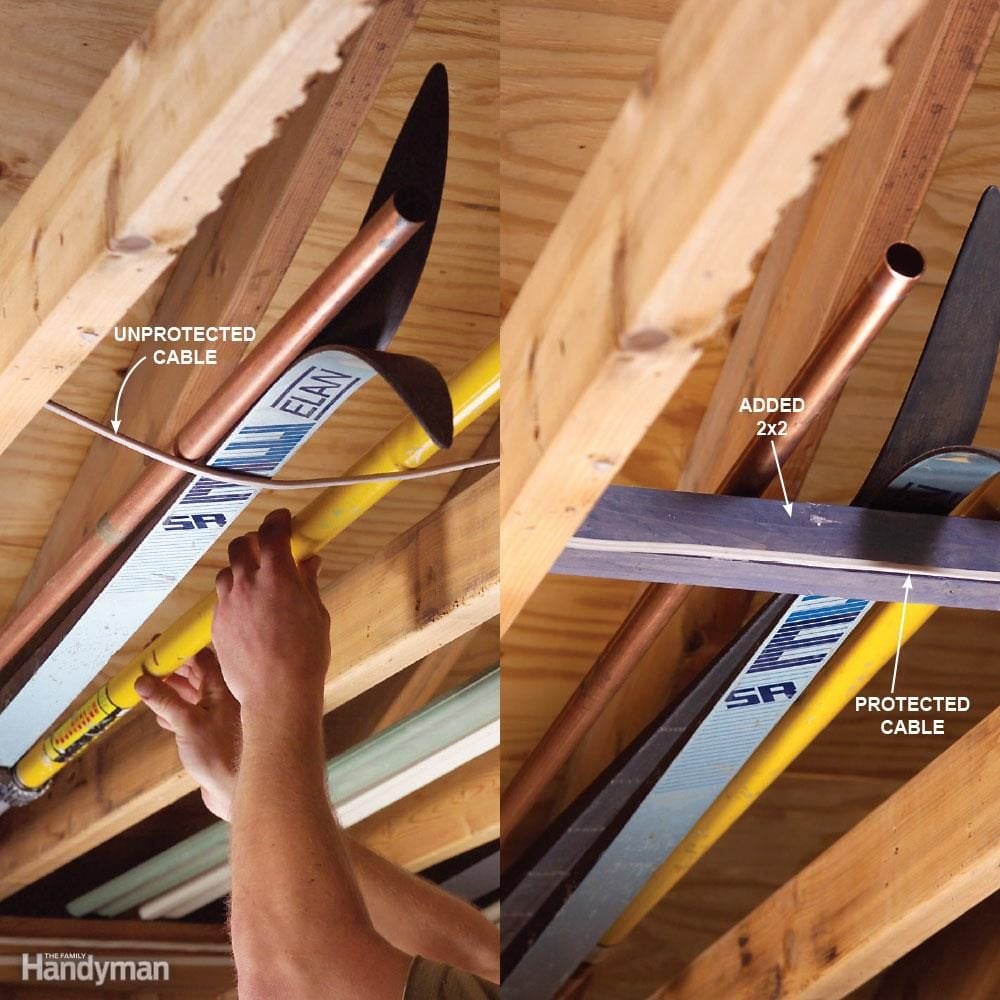 Family Handyman
Family Handyman
Leaving Plastic-Sheathed Cable Unprotected
Mistake: Unprotected cable | It's easy to damage plastic- sheathed cable that's left exposed between framing members. That's why the electrical code requires cable to be protected in these areas. Cable is especially vulnerable when it's run over or under wall or ceiling framing, as shown here.
Solution: Install a 2 x 2 | Protect exposed plastic- sheathed cable by nailing or screwing a 1-1/2-in.-thick board alongside the cable. You don't have to staple the cable to the board. Running wire along a wall? Use metal conduit.
4 / 10
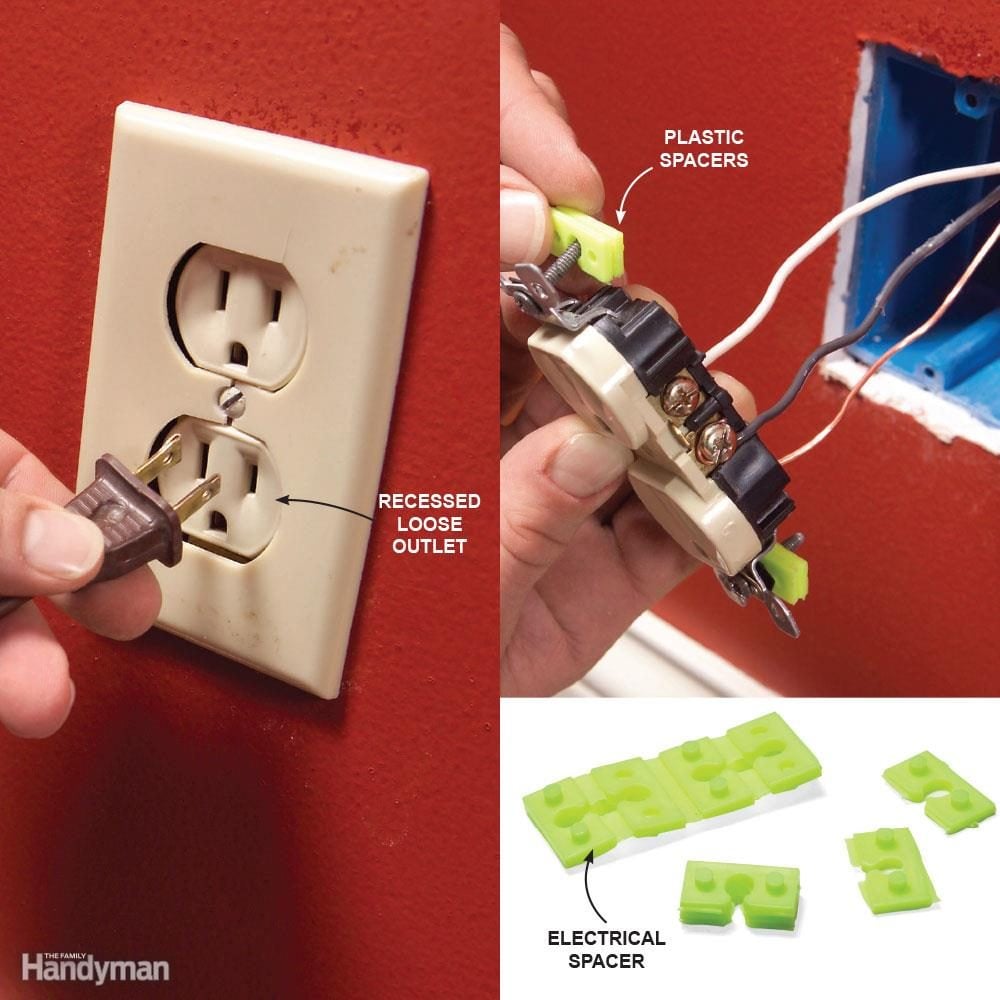 Family Handyman
Family Handyman
Poor Support for Outlets and Switches
Mistake: Loose outlet | Loose switches or outlets can look bad, but worse yet, they're dangerous. Loosely connected outlets can move around, causing the wires to loosen from the terminals. Loose wires can arc and overheat, creating a potential fire hazard.
Solution: Add rigid electrical box spacers | Fix loose outlets by shimming under the screws to create a tight connection to the box. You can buy special spacers like we show here at home centers and hardware stores. Other options include small washers or a coil of wire wrapped around the screw. Add some insulation while you're back there, too.
5 / 10
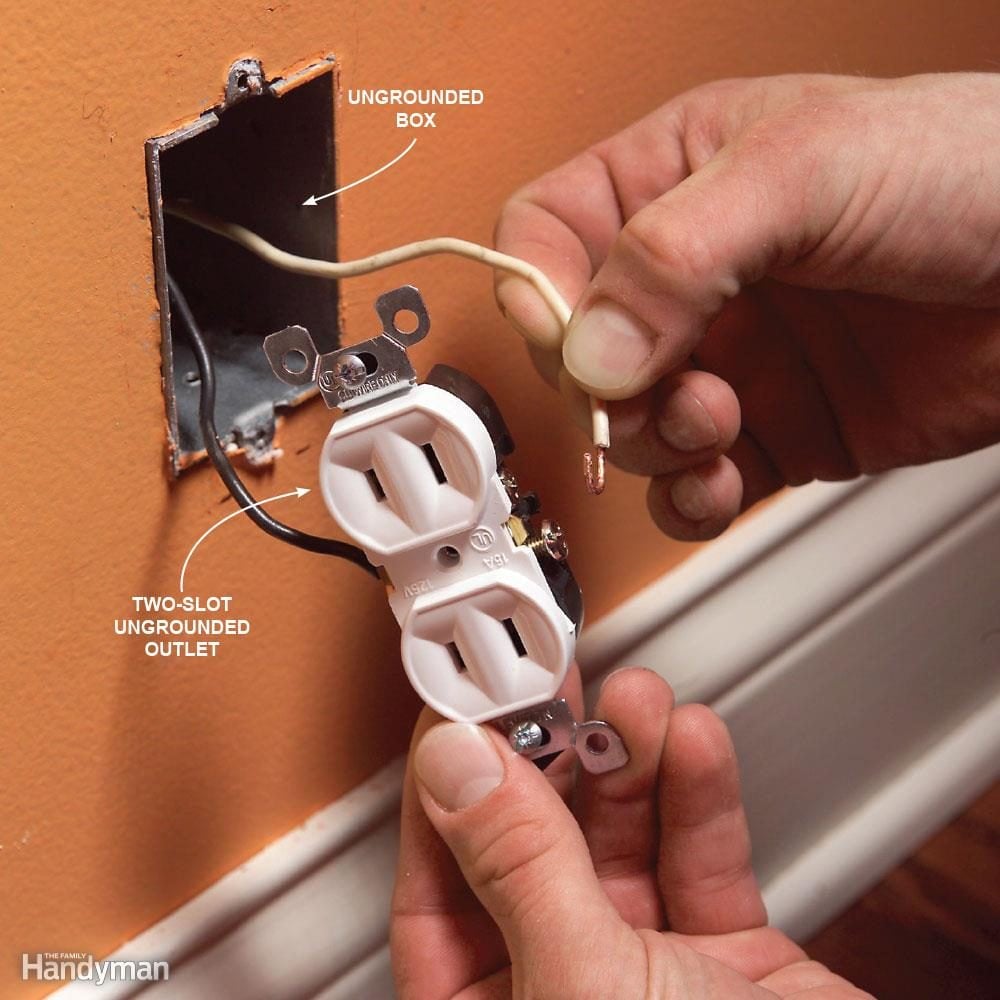 Family Handyman
Family Handyman
Installing a Three-Slot receptacle without a Ground Wire
Solution: Install a two-slot outlet | If you have two-slot outlets, it's tempting to replace them with three-slot outlets so you can plug in three-prong plugs. But don't do this unless you're sure there's a ground available. Use a tester to see if your outlet is grounded. A series of lights indicates whether the outlet is wired correctly or what fault exists. These testers are readily available at home centers and hardware stores. If you discover a three-slot outlet in an ungrounded box, the easiest fix is to simply replace it with a two-slot outlet as shown.
6 / 10
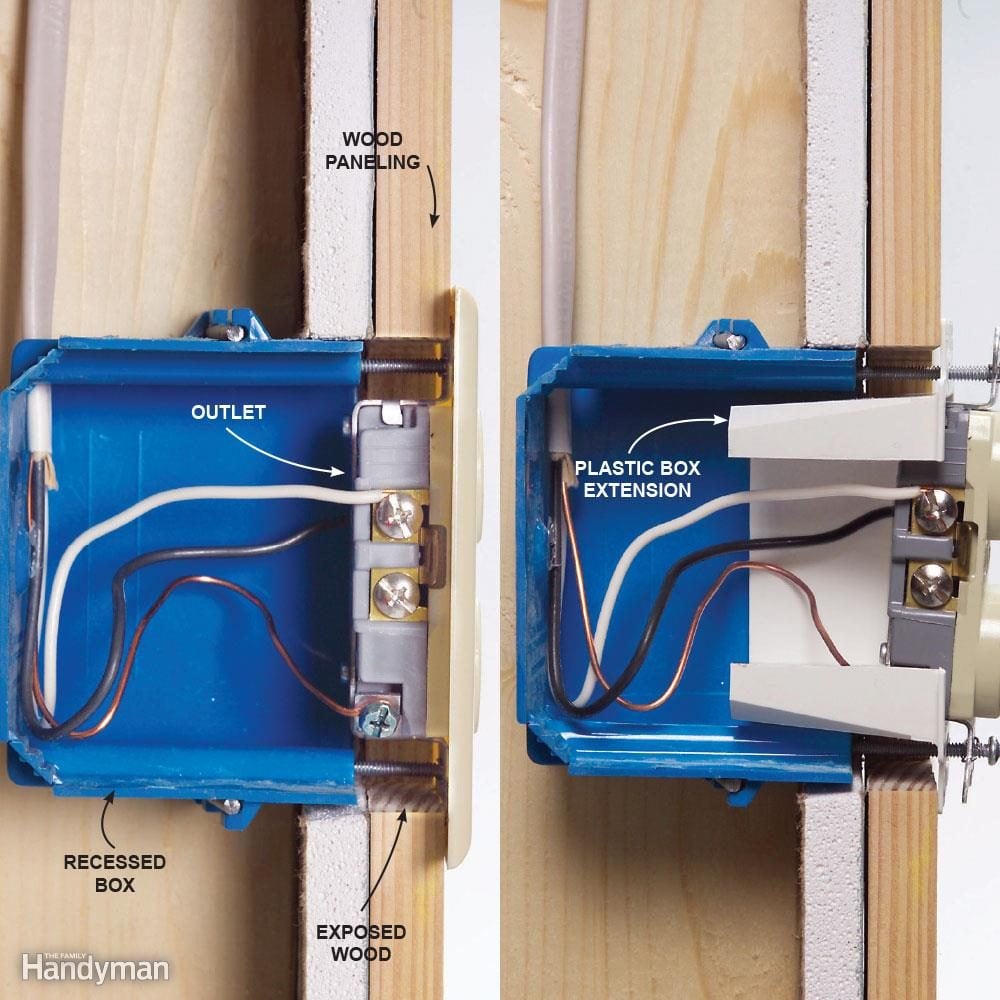 Family Handyman
Family Handyman
Recessing Boxes Behind the Wall Surface
Mistake: Exposed combustible material | Electrical boxes must be flush to the wall surface if the wall surface is a combustible material. Boxes recessed behind combustible materials like wood present a fire hazard because the wood is left exposed to potential heat and sparks.
Solution: Add a box extension | The fix is simply to install a metal or plastic box extension. If you use a metal box extension on a plastic box, connect the metal extension to the ground wire in the box using a grounding clip and a short piece of wire.
7 / 10
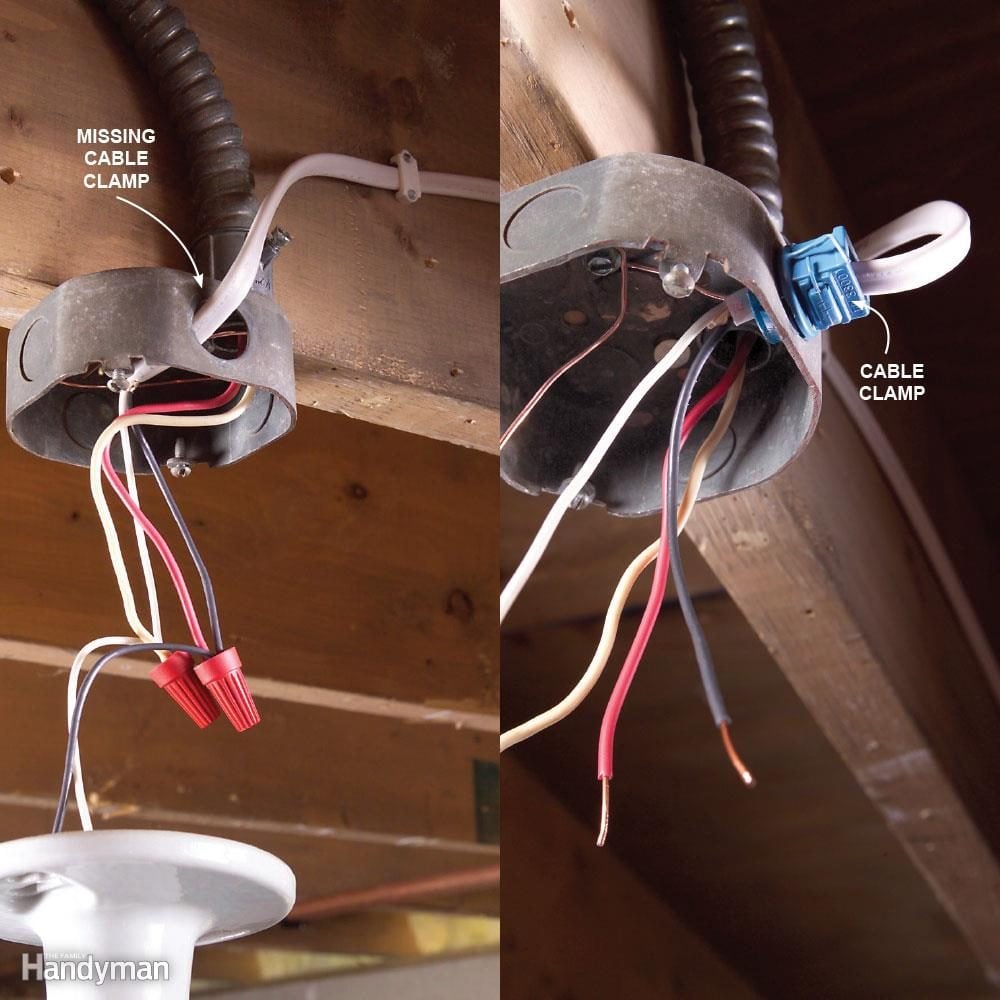
Installing Cable Without a Clamp
Mistake: Missing clamp | Cable that's not secured can strain the connections. In metal boxes, the sharp edges can cut the insulation on the wires. Single plastic boxes do not require internal cable clamps, but the cable must be stapled within 8 in. of the box. Larger plastic boxes are required to have built-in cable clamps and the cable must be stapled within 12 in. of the box. Cables must be connected to metal boxes with an approved cable clamp.
Solution: Install a clamp | Make sure the sheathing on the cable is trapped under the clamp, and that about 1/4 in. of sheathing is visible inside the box. Some metal boxes have built-in cable clamps. If the box you're using doesn't include clamps, buy clamps separately and install them when you add the cable to the box.
8 / 10
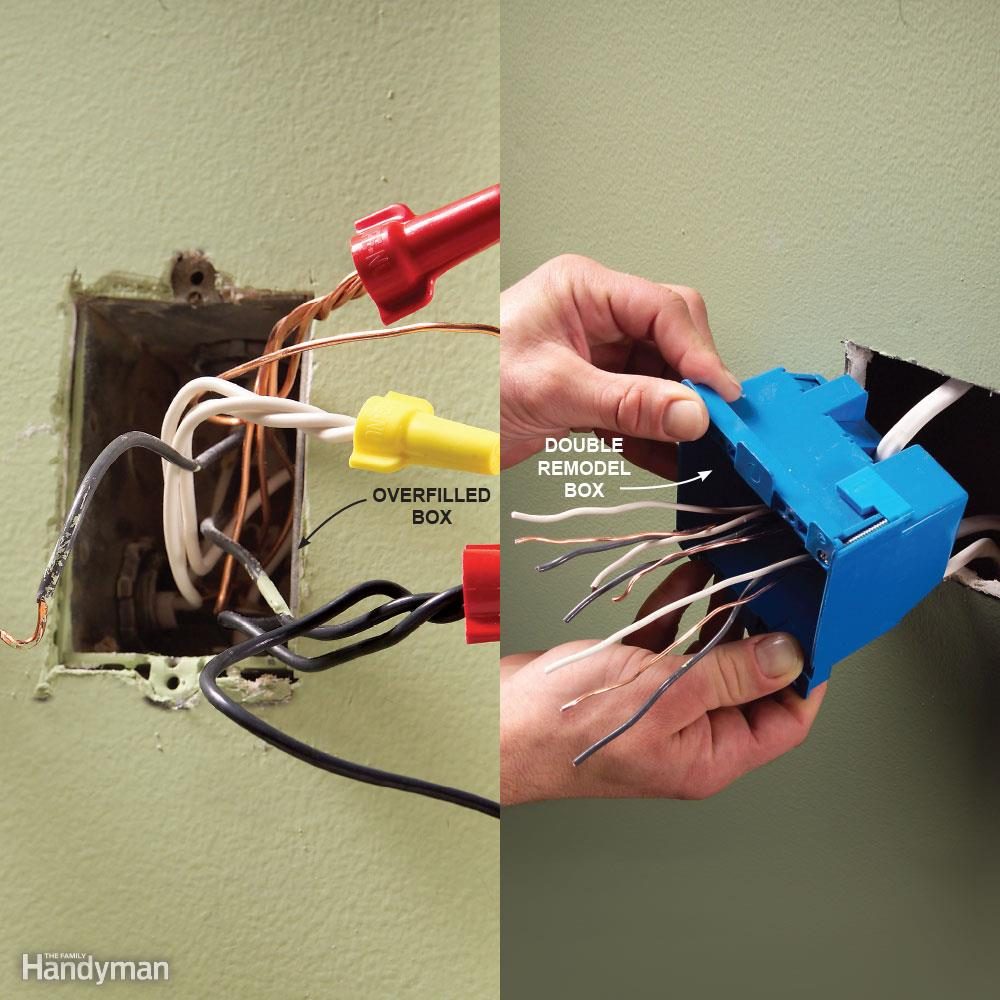
Overfilling Electrical Boxes
Mistake: Box too small | Too many wires stuffed into a box can cause dangerous overheating, short-circuiting and fire. The National Electrical Code specifies minimum box sizes to reduce this risk.
Solution: Install a larger box | To figure the minimum box size required, add up the items in the box:
- 1 – for each hot wire and neutral wire entering the box
- 1 – for all the ground wires combined
- 1 – for all the cable clamps combined
- 2 – for each device (switch or outlet?but not light fixtures)
Multiply the total by 2.00 for 14-gauge wire and by 2.25 for 12-gauge wire to get the minimum box size required in cubic inches. Then choose a box with at least this much volume. Plastic boxes have the volume stamped inside, usually on the back. Steel box capacities are listed in the electrical code. Steel boxes won't be labeled, so you'll have to measure the height, width and depth of the interior. Then multiply to find the volume.
9 / 10

Reversing Hot and Neutral Wires
Solution: Identify the neutral terminal | Connecting the black hot wire to the neutral terminal of an outlet creates the potential for a lethal shock. The trouble is that you may not realize the mistake until someone gets shocked, because lights and most other plug-in devices will still work; they just won't work safely.
Always connect the white wire to the neutral terminal of outlets and light fixtures. The neutral terminal is always marked. It's usually identified by a silver or light-colored screw. Connect the hot wire to the other terminal. If there's a green or bare copper wire, that's the ground. Connect the ground to the green grounding screw or to a ground wire or grounded box.
10 / 10
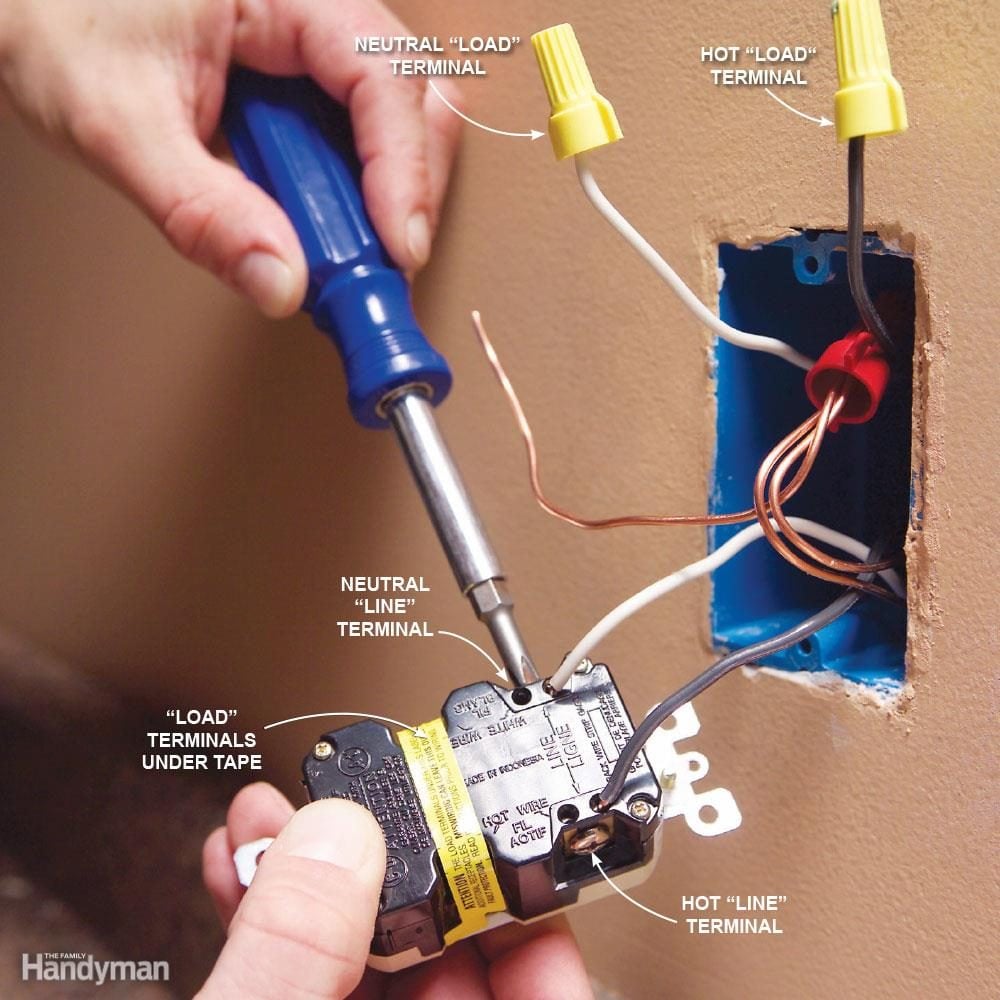 Family Handyman
Family Handyman
Wiring a GFCI Backward
Solution: Connect power to the 'line' terminals | GFCI (ground fault circuit interrupter) outlets protect you from a lethal shock by shutting off the power when they sense slight differences in current. They have two pairs of terminals. One pair, labeled 'line,' is for incoming power for the GFCI outlet itself. The other set is labeled 'load' and provides protection for downstream outlets. You'll lose the shock protection if you mix up the line and load connections.
Originally Published: October 18, 2019
Sign up for DIY projects sent right to your inbox
Complete DIY projects like a pro! Sign up for our newsletter!

Subscribe & SAVE 1 Year Subscription
for only $10!
How to Install Junction Box in Existing Wall
Source: https://www.familyhandyman.com/list/top-10-electrical-mistakes/